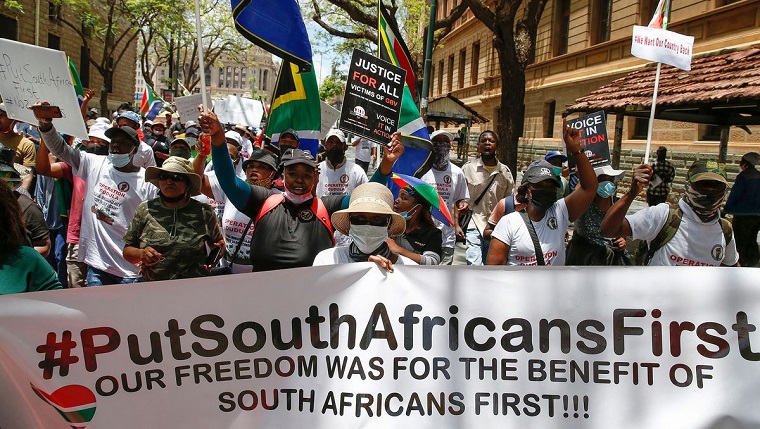As a result, when the new South Africa was born the old state remained firmly in place, continuing to guard the border from the threats just across the Limpopo, as it always had. It was a decade before the Bill on International Migration came into force in 2003 and it too retained critical elements of the old outlook.
The ANC politicians running the country somehow began to buy into the idea that immigrants posed a threat to security. Immigration continued to be seen as a containment strategy rather than as a path to economic growth. As President Jacob Zuma tightens his grip on the security sector, and extends the power and reach of the security cluster in all areas of governance, this attitude seems to be hardening rather than softening.
None of South Africa’s current crop of political leaders seem to be asking the kinds of questions that will begin to resolve the question the role that immigration can and should play in the building of our new nation. South Africa’s political leadership sees Africa in one of two ways: either as a market for South African goods, differentiated only to the extent that Africans can be sold our products; or as a threat, part of a deluge of the poor and unwashed who take ‘our jobs and our women.’
No one in government today seems to understand that post-apartheid South Africa continues to be the site of multiple African imaginations. One cannot deal with ‘Africa’ without dealing with the subjectivity of what South Africa meant to Africa historically, and the disappointment that a free South Africa has signified in the last decade.
So much of the pan-Africanist project – even with its failings – has been about an imagined Africa in which the shackles of colonialism have been thrown off. South Africa has always been an iconic symbol in that imaginary. Robben Island and Nelson Mandela, the burning streets of Soweto, Steve Biko’s bloodied, broken body: these images did not just belong to us alone. They brought pain and grief to a continent whose march towards self-determination included us, even when our liberation seemed far, far away. With the invention of the ‘new’ South Africa the crucial importance of African visions for us have taken a back seat. South Africans have refused to admit that we are a crucial aspect of the African project of self-determination. In failing to see ourselves in this manner, we have denied ourselves the opportunity to be propelled – transported even – by the dreams of our continent.
What would South Africa be like without the ‘foreign’ academics who teach mathematics and history on our campuses? How differently might our students think without their deep and critical insights about us and the place we occupy in the world? How might we understand our location and our political geography differently if ‘foreigners’ were not here offering us different ways of wearing and inhabiting blackness? What would our society look like without the tax paying ‘foreigners’ whose children make our schools richer and more diverse? What would inner city Johannesburg smell like without coffee ceremonies and egusi soup? What would Cape Town’s Greenmarket square be without the Zimbabwean and Congolese taxi drivers who literally make the city go?
Continued next page
(289 VIEWS)


